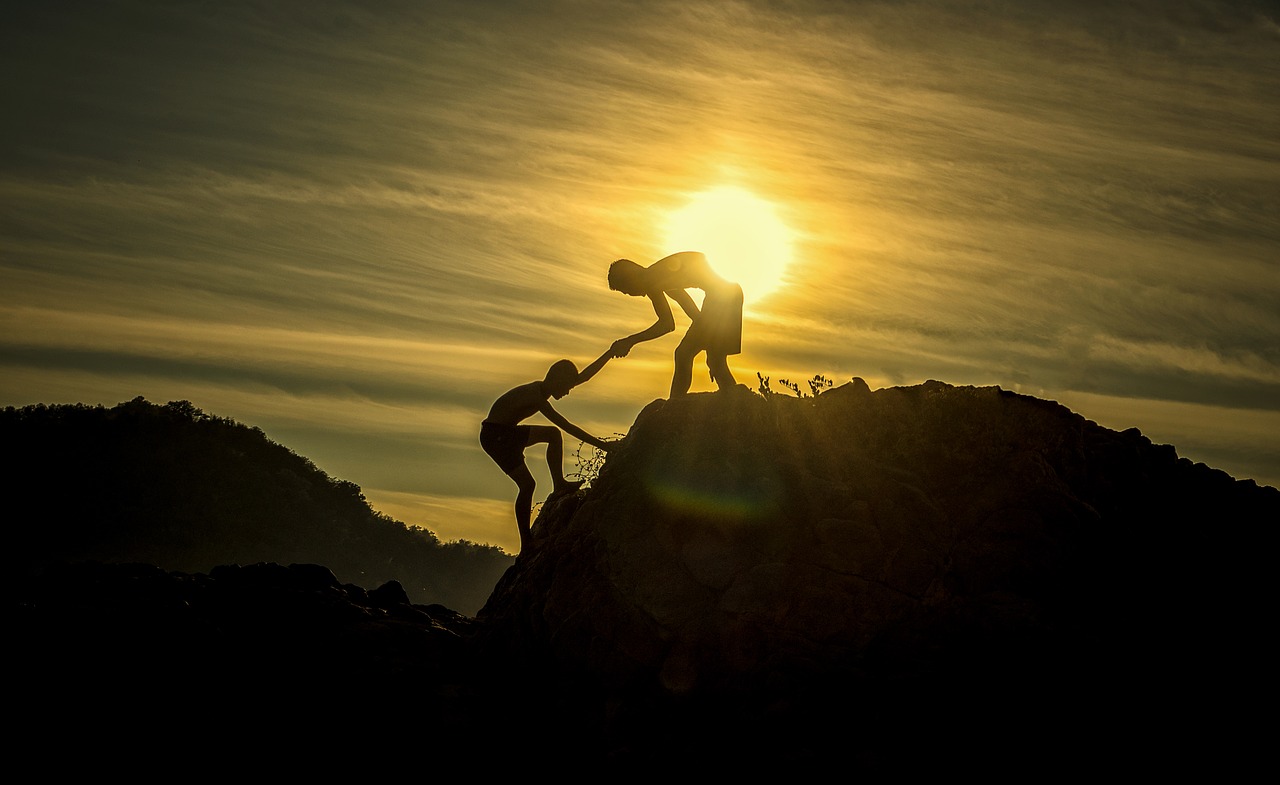
It’s something you see every day. Around the holiday season, you’ll certainly see more of it. Why are people nice to each other? Why do we hold the door open for the person behind us when we’re in a rush? Why do we donate money to charity when it takes away money from our pockets? Why do we even say “hello” to a fellow jogger while on the winding path that follows the lake, when we will likely never see them again?
On the surface, there are no functional benefits to being nice. You don’t get rewarded for being courteous to one another. Yes, we might “feel good,” knowing that we’ve done “something right,” but it doesn’t make us rich. It doesn’t give us that promotion at work (well, maybe if you open the door for the boss, you might). It doesn’t upgrade us to first class when we’re jetting across the Pacific. It doesn’t help us live longer. It doesn’t lead to more sex.
Or does it?
Economists have traditionally explained away mankind’s generosity to one another to something they call the “warm glow.” That is, you feel good inside when you help other people, when you donate money, when you give to the food bank.
There are also likely evolutionary forces at work. In my recent research published in Evolution and Human Behavior, I found that being generous can help mankind survive. On the face of it, this seems like poppycock. How does opening the door for someone help us live longer? But think about it. When we are nice to someone, it’s quite likely that someone will be nice to us in return. Maybe not literally, since the person for whom you open the door is likely a stranger, but how can a community or even a country survive if no one in it is nice to each other? If we’re all self-interested, our society, our way of living won’t survive long.
I conducted three experiments and found that altruism is one strategy that humans have developed when they are facing danger and threats. It makes sense. When humans band together, they have a better chance of surviving than a person alone. Being altruistic to others means someone is likely to be nice to you in return, forming a community, and there is “strength in numbers.”
In one study, I asked Australian college students to imagine a situation that would make them want to protect themselves from potential threats and dangers. Compared to students who did not imagine such a situation, the students answered more questionnaires for a student doing research for her honors thesis, voluntarily. In a second study, I found that college students were especially more likely to help someone else when they expected some sort of interaction with the recipient of their charity, suggesting that an expectation that they could all “band together” might explain why they would be nicer to begin with. In a final study, I found that students were only more altruistic when the recipient was a person and not an organization. This makes sense because another person can be nice to you in return, but an organization can not, even if it may be a perfectly charitable and an ethical organization.
My findings are only just a few findings that the survival challenges that our evolutionary ancestors may have faced can explain why human beings are charitable today. Similarly, others have found that men, in particular, are especially more likely to donate money when pretty women are around. This might seem like a very sexist finding, but that’s just the point.
Human beings (both men and women) have an innate motivation to increase their chances of mating by making themselves attractive to the opposite sex. Evolutionarily-speaking, women look for men who are physically-attractive, wealthy, and generous. Unfortunately, going to the gym cannot give men six-pack abs overnight. They might also not be able to increase their wealth to any significant degree overnight — unless they play the slots in Vegas and win big. But women also look for men who are generous, and so men have, over time, learned that donating money to charity — or simply holding the door for someone — is a good way to increase their chances of mating. When attractive women are around, men are especially more generous.
What does this all say about why human beings — both men and women — are charitable? Certainly, there are many reasons. Economists suggest the “warm glow” effect. Or, maybe human beings are simply born to be nice. But recent evidence suggests that evolutionary forces can play a role as well. It makes sense since humans have an innate need to survive and thrive, and so we find all the ways we can to do so.
But, one question still has eluded social scientists—including those who study evolutionary psychology. Economists say humans are friendly because we want to feel good about ourselves. Evolutionary psychologists say humans are generous because we want to live a long and prosperous life. But, then, can people be nice because they simply want to be nice, without any expectation in return? This is a question that only each and every one of us can answer for themselves. Think about it the next time you open the door for a stranger.
These findings are described in the article entitled Self-protection promotes altruism, recently published in the journal Evolution & Human Behavior. This work was conducted by Eugene Chan from Monash University.









